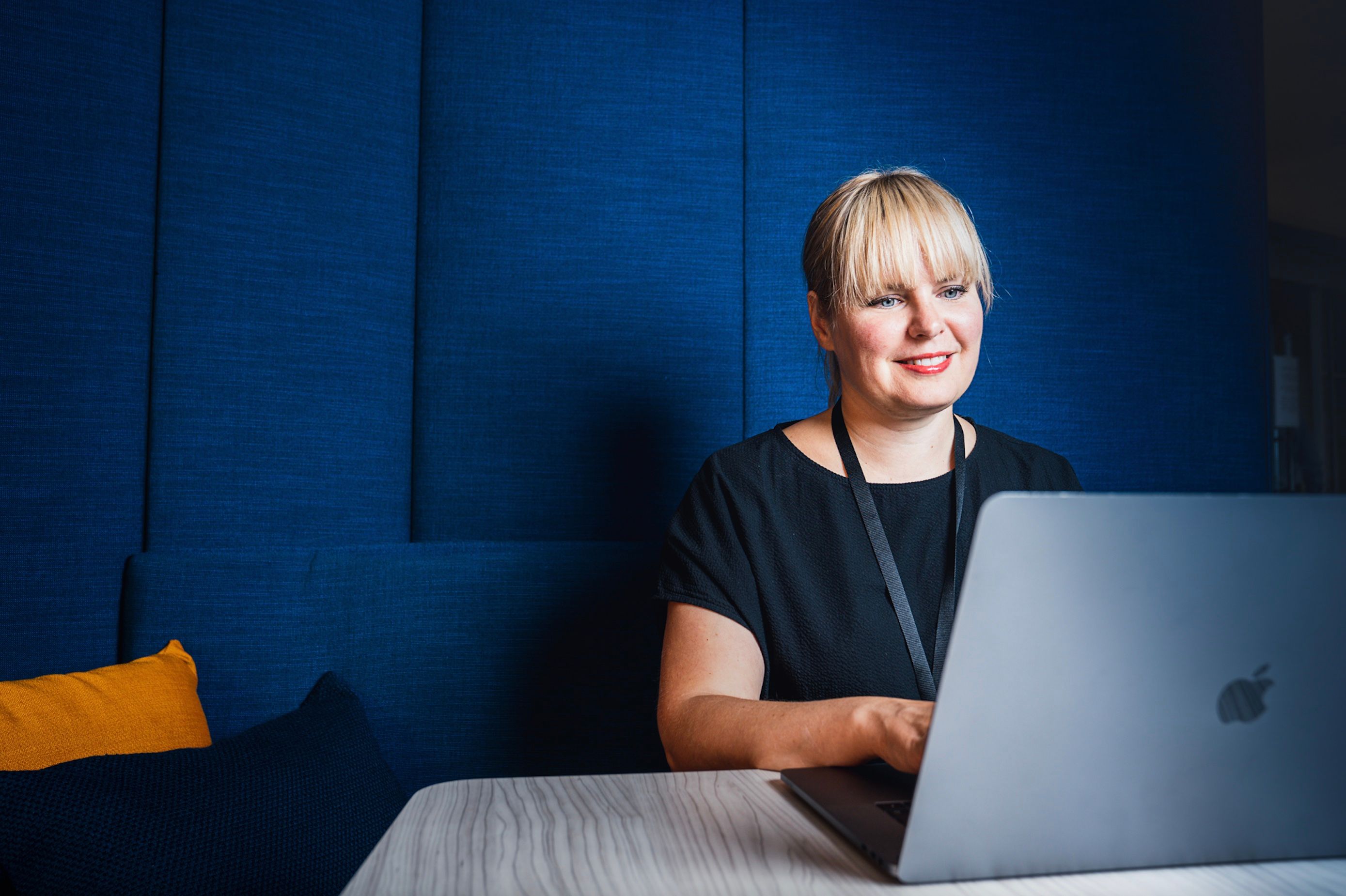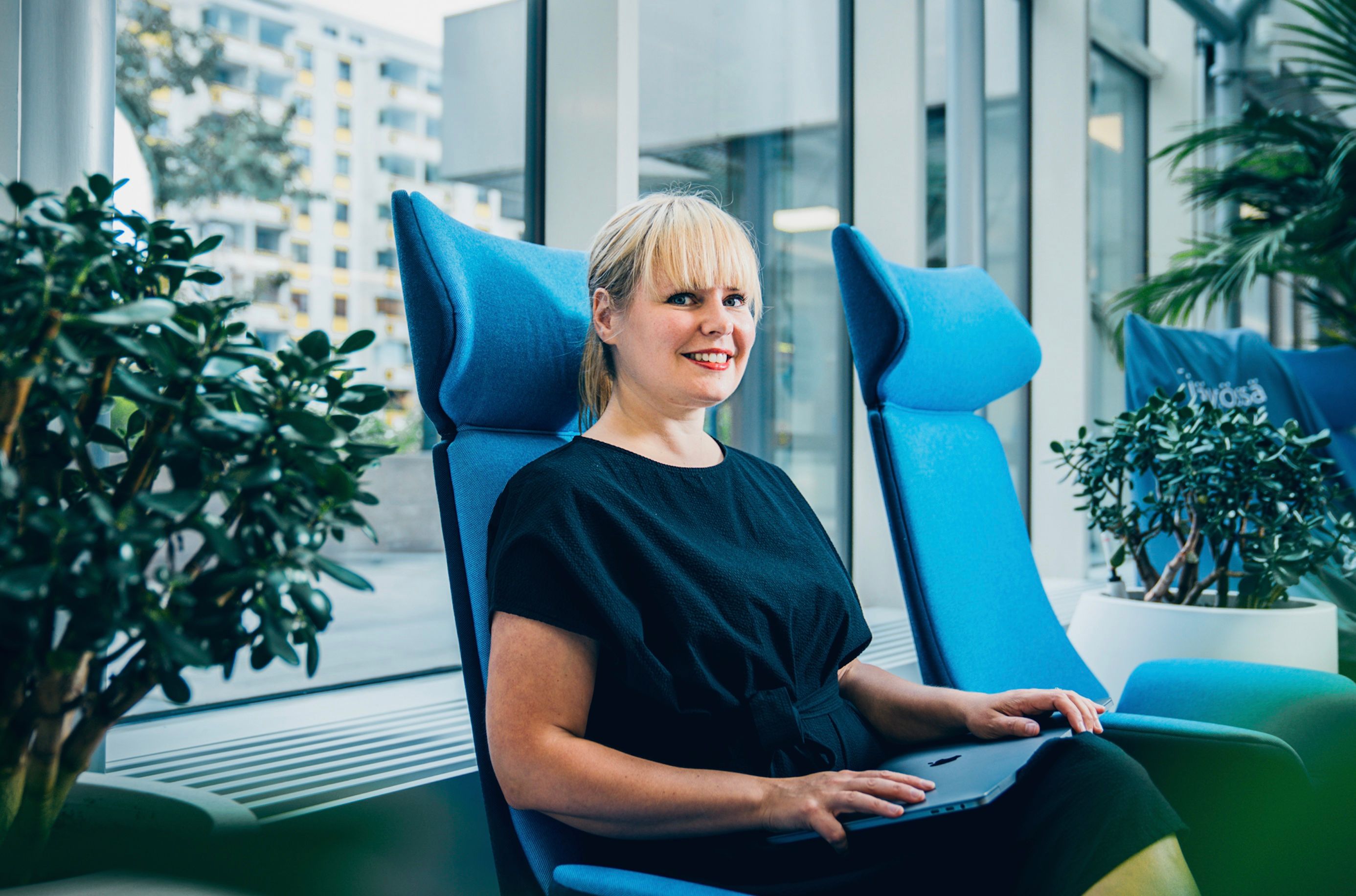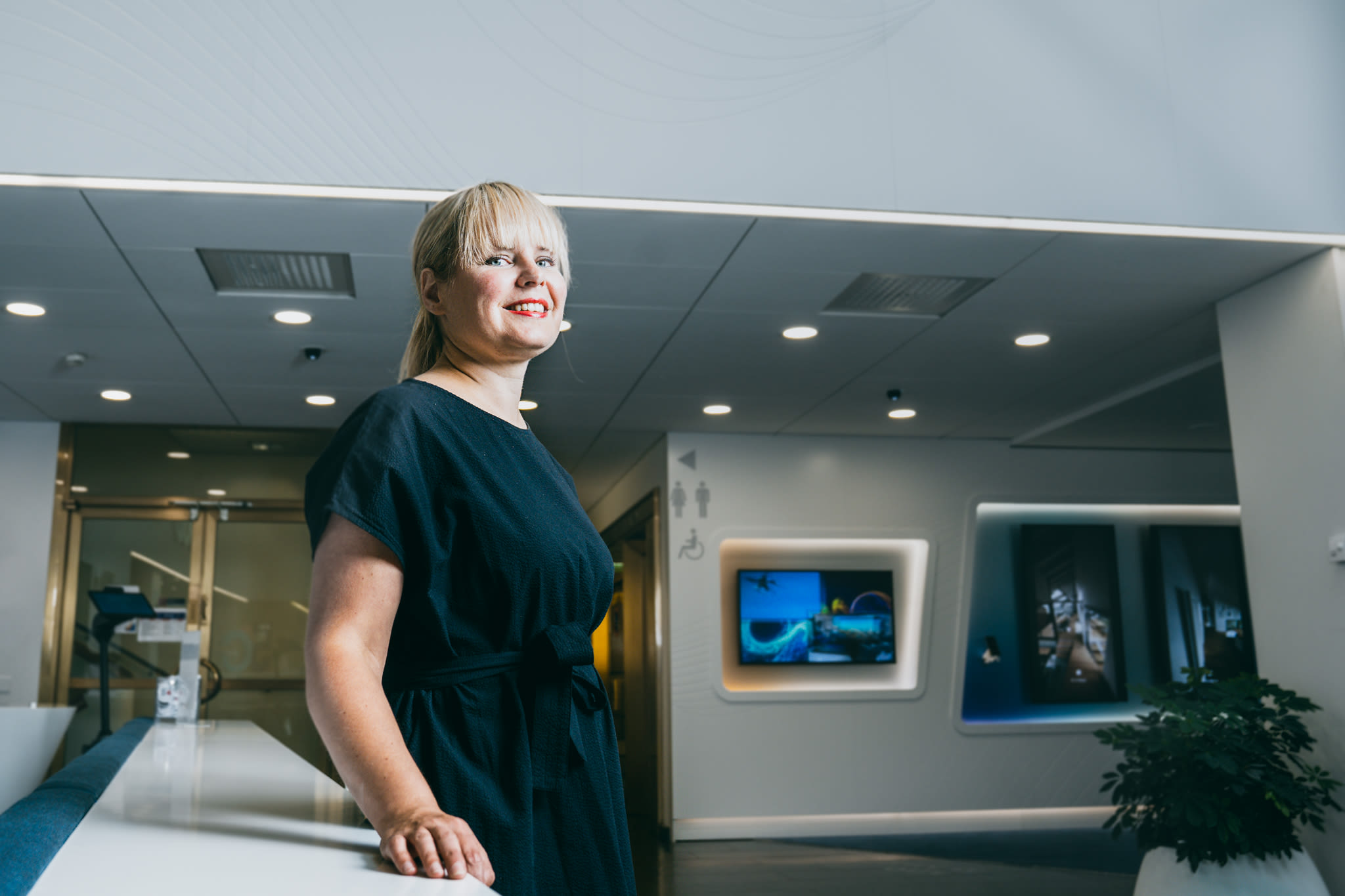“Sometimes, technology – or a technological possibility – exists, but it’s not clear what needs or problems it could solve. In these cases, co-development and service design processes help to move things forward. In this case, they already had the seed of an idea, but the goal was to get to the heart of the matter and create concrete solutions in an agile manner. Several municipalities took part in the development work”, explains Reetta.
According to Reetta, the agile nature of service design sprints means that the process moves forwards in just a few weeks from clarifying the goals, through co-development and testing demos, to the point where the solution can be taken into use. Now Helsinki University Hospital – and several other hospital districts – are using the service.
Big possibilities, modern working methods and the experimental culture maintain Reetta’s enthusiasm
“Sometimes, the most important development ideas or projects can last months or years, or don’t get done at all, if there isn’t enough expertise or available resources. Through these sprints, our team can get concrete specifications of the problem in a very short time. One thing I really like about Elisa is these modern working methods and the huge opportunities they create”, says Reetta.
Modern ways of doing things make Elisa’s working culture possible – a culture that includes a genuine desire to be at the forefront of new developments. A good example of this is the 5G network, which Elisa was among the first companies in the world to offer. As a company, Elisa is always looking to the future.
“In my opinion, continuously looking forward like this makes support from management possible, and also, for example, makes Elisa a good place to be with a positive atmosphere. Elisa puts a lot of emphasis on employee wellbeing, listening to the people who work here, and developing new internal working methods”, explains Reetta.
Additionally, Elisa supports its employees in learning new things, ensuring that they maintain a high level of expertise. Elisa also offers the opportunity for job rotation every couple of years to further improve its employees’ skillsets. This gives everyone the chance to experience new challenges within the company, as well as to bring their existing expertise to new areas.
“For me, something similar to job rotation happens naturally as part of my work because I work with so many different customers from different sectors”, says Reetta.


